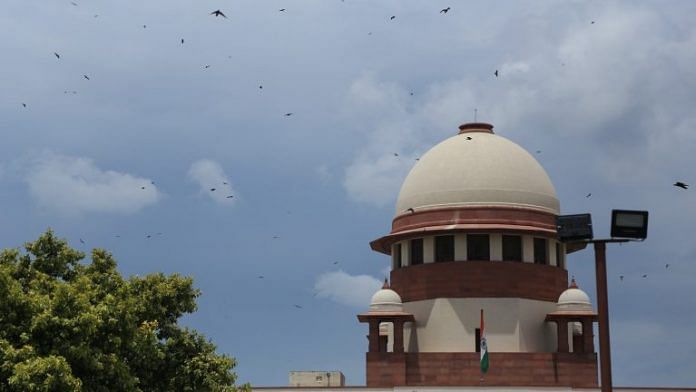New Delhi: The Supreme Court Wednesday stayed a Bombay High Court judgment that interpreted sexual assault as only “skin-to-skin” contact with sexual intent under the Protection of Children from Sexual Offences (POCSO) Act, 2012.
In a judgment passed on 19 January, Justice Pushpa V. Ganediwala acquitted the accused, Satish, under Section 7 (sexual assault) of the POCSO Act, while ruling that the act of groping a child’s breast, without any skin-to-skin contact and sexual intent, is not sexual assault under the law.
“The act of pressing of breast of the child aged 12 years, in the absence of any specific detail as to whether the top was removed or whether he inserted his hand inside top and pressed her breast, would not fall in the definition of ‘sexual assault’,” the court had said.
On Wednesday, Attorney General K.K. Venugopal mentioned the Bombay High Court verdict before Chief Justice of India S.A. Bobde’s court, calling it a “disturbing conclusion” and asserted that it “sets a dangerous precedent”.
The AG also told the court that the Centre will file a petition in the apex court, challenging the high court verdict by Thursday.
In the meantime, the court stayed the release of the accused in the case and issued notice to him.
Also read: This is the reason why BHC argues groping a child is not sexual assault under POCSO
‘Direct physical contact i.e. skin to skin’
The high court was dealing with an incident that dates back to December 2016.
According to the complaint lodged by the mother of the girl who was then a 12-year-old, Satish took her to his house on the pretext of giving her a guava.
He then “pressed her breast and attempted to remove her salwar”. The girl’s mother reached the spot just then and rescued her, the complaint stated, adding that she immediately got an FIR registered against Satish.
In February 2020, a trial court found him guilty under sections 354 (assault or criminal force to woman with intent to outrage her modesty), 363 (kidnapping) and 342 (wrongful confinement) of the IPC, and Section 8 (punishment for sexual assault) of the POCSO Act.
He was sentenced to three years’ rigorous imprisonment and a fine of Rs 500 was imposed on him. Satish then filed an appeal in the high court.
The high court considered the question “whether the ‘pressing of breast’ and ‘attempt to remove salwar’ would fall within the definition of ‘sexual assault’ as defined under Section 7 and punishable under Section 8 of the POCSO Act”.
Justice Pushpa V. Ganediwala then ruled that physical contact for sexual assault under Section 7 of the POCSO Act would mean “direct physical contact i.e. skin to skin”, the court added.
“Admittedly, it is not the case of the prosecution that the appellant removed her top and pressed her breast. As such, there is no direct physical contact i.e. skin to skin with sexual intent without penetration,” it said.
The court pointed out that it wasn’t the prosecution case that Satish “removed her top and pressed her breast”.
It then opined that this would fall under Section 354 of the IPC, and convicted Satish under this provision.
This led to his punishment being reduced from a three-year rigorous imprisonment — the minimum under Section 8 of the POCSO Act, which lays down punishment for offences listed under Section 7 — to a year’s rigorous imprisonment — the minimum under Section 354.
Meanwhile, the Youth Bar Association of India has also filed a petition in the Supreme Court challenging the high court verdict. The petition asserts that the observations and reasoning in the verdict would “lead to a dastardly situation”.
Also read: ‘Absurd interpretation’ — experts say HC’s POCSO order in groping case wrong on many levels




What the hell!!! I think Justice should get practical trail then she will realise what justice she is passing.